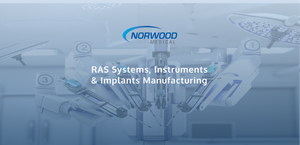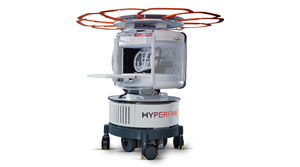The Dublin-based company has been building up data through numerous trials to help support the recovery of its renal denervation program.
May 22, 2019

Redemption of Medtronic’s renal denervation program to treat hypertension is seemingly on the horizon. The Dublin-based company reported results from an investigator-led study and a registry that demonstrate long-term results of RDN’s impact on uncontrolled hypertension.
These results were presented during a Late-Breaking Clinical Trial session at EuroPCR in Paris.
In the investigator -led study data indicated RDN with the Medtronic Symplicity system was associated with reduced occurrence of subclinical Atrial Fibrillation (AFib) in a small subset of high-risk patients with hypertensive heart disease over a median follow-up period of more than two years.
The study randomized 80 patients to either the RDN procedure with the Symplicity system or a fake "sham" procedure. Results from the study demonstrate subclinical AFib developed at a lower rate in the group of patients who received RDN than those receiving the sham procedure (19% vs. 47%).
Three-year data from the Global SYMPLICITY Registry (GSR), which is the largest registry documenting the long-term safety and effectiveness of the Medtronic RDN systems in a real-world setting in patients with uncontrolled hypertension. To date, the registry has enrolled more than 2,600 patients treated with RDN and includes three-year follow-up for more than 2,300 patients.
The latest outcomes from the Registry presented at EuroPCR showed RDN led to significant and clinically meaningful reductions in both office and ambulatory blood pressure that were sustained out to three years post-procedure (16.5 mm Hg OSBP and 8.9 mm Hg 24H systolic ABPM). The Registry findings showed blood pressure reductions were consistent and sustained across various high-risk patient subgroups, including those with diabetes, isolated systolic hypertension, chronic kidney disease, resistant hypertension, and those aged 65 years and older.
"As demonstrated by these studies presented at EuroPCR, new data continue to demonstrate that renal denervation is a safe and useful complement to manage uncontrolled hypertension, with patients experiencing meaningful blood pressure reductions out to several years and in the setting of daily clinical practice," Dave Moeller, VP and GM of the Coronary and Renal Denervation business, which is part of the Cardiac and Vascular Group at Medtronic, said in a release. "Results from these studies will add to the robust growing body of evidence supporting renal denervation and may be important for consideration with patients suffering from uncontrolled hypertension."
But will this data make a difference? With a number of trials already underway, if the data continues to hold up then Medtronic could be on its way to redeeming its RDN efforts.
RDN Market Reborn?
The picture for RDN to treat uncontrolled hypertension was much brighter a few years ago. The therapy even took center stage at the European Society of Cardiology Congress’ 2012 meeting. Analysts were even forecasting RDN had the potential to be a $5 billion market.
But things came crashing down when Medtronic’s Symplicity Renal Denervation system failed to meet its primary endpoint in SYMPLICITY HTN-3 trial. Many companies that were pursuing the space abandoned the idea – taking huge write-downs for the failed investments.
Medtronic took a $236 million write-down, according to a 2014 SEC filing. It was only three years prior to the filing, the medtech-giant spent $800 million to acquire Ardian for entry into the RDN market.
But the company never fully gave up on the promise of RDN. In November of 2018, Medtronic’s persistence paid off after FDA greenlit a new clinical trial to evaluate the Symplicity Spyral RDN system.
Medtronic isn’t the only company trying its hand at RDN. Otsuka Holdings made a move to acquire ReCor Medical for an undisclosed sum in July. Tokyo-based Otsuka’s big move came just a few short days after FDA gave Palo Alto, CA-based ReCor Medical the green light to run a pivotal study of its ultrasound-based renal denervation system for the treatment of hypertension.
About the Author(s)
You May Also Like




